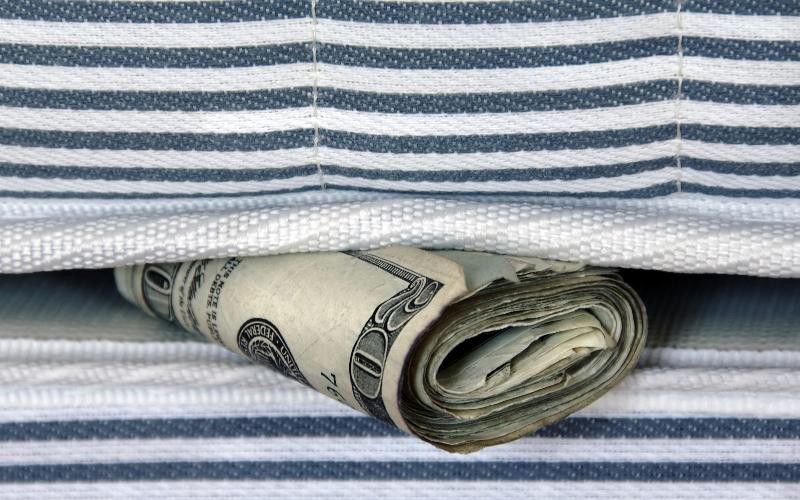February 13, 2016

The war on cash has gone from overt to covert. Having expended all their ammo with Quantitative Easing to infinity and zero interest rate policy (ZIRP), central banks are now looking toward negative interest rates.
What are negative interest rates? Right now, banks pay only slightly above 0 percent interest on savings. In reality, that’s already a negative rate of return. Real inflation (not the government’s fiction inflation) of the money supply is running north of 7 percent. So your money depreciates while in savings. You might as well hide it under the mattress.
But banksters now are looking for ways to make use of cash difficult and also charge people a fee (negative interest) to deposit and hold their money. Likewise, all deposits are now subject to a “haircut” if the bank is about to go belly-up. That means banksters will skim some off the top of all deposit accounts in order to keep the “too-big-to-fails” afloat.
JP Morgan Chase recently implemented new controls on cash. Want to make a cash deposit or pay a loan or credit card with cash? You must show ID. And now Citibank is preparing new policies for cash deposits. Cash deposits to an account will require the depositor to state the purpose of the deposit, provide a Social Security number, provide identification and provide a place of employment and job type.
Apparently there’s begun such a huge increase in people using cash to pay off debts for other people or expand other people’s savings accounts that banksters are becoming concerned. (Excuse the sarcasm.)
So why are banksters suddenly opposed to cash? There are three reasons (at least): they can’t control or track its use, to prevent people from pulling their money out of banks if negative interest rates (where people pay the bank to hold their cash) are introduced, and to consolidate their power.
Of course, that is not the excuse the banksters use. They claim cash is tool of criminals. In a report for the Harvard Kennedy School for Business, Peter Sands proposes eliminating “high value currency notes” like $100 bills because, “Such notes are the preferred payment mechanism of those pursuing illicit activities, given the anonymity and lack of transaction record they offer, and the relative ease with which they can be transported and moved. By eliminating high denomination, high value notes we would make life harder for those pursuing tax evasion, financial crime, terrorist finance and corruption.”

No comments:
Post a Comment